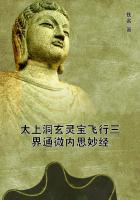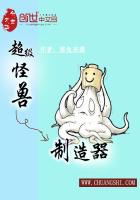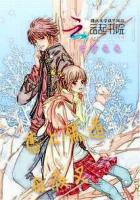"It's under the wagon sheet, boys," he said. "I know what you're waiting for. If Sam lets it run out again we'll use those yellow shoes of his for a target. There's two cases. Pull 'em out and light up. Iknow you all want a smoke."After striking dry country Ranse had removed the wagon sheet from the bows and thrown it over the goods in the wagon. Six pair of hasty hands dragged it off and grabbled beneath the sacks and blankets for the cases of tobacco.
Long Collins, tobacco messenger from the San Gabriel outfit, who rode with the longest stirrups west of the Mississippi, delved with an arm like the tongue of a wagon. He caught something harder than a blanket and pulled out a fearful thing--a shapeless, muddy bunch of leather tied together with wire and twine. From its ragged end, like the head and claws of a disturbed turtle, protruded human toes.
"Who-ee!" yelled Long Collins. "Ranse, are you a-packin' around of corpuses? Here's a--howlin' grasshoppers!"Up from his long slumber popped Curly, like some vile worm from its burrow. He clawed his way out and sat blinking like a disreputable, drunken owl. His face was as bluish-red and puffed and seamed and cross-lined as the cheapest round steak of the butcher. His eyes were swollen slits; his nose a pickled beet; his hair would have made the wildest thatch of a Jack-in-the-box look like the satin poll of a Cleo de Merode. The rest of him was scarecrow done to the life.
Ranse jumped down from his seat and looked at his strange cargo with wide-open eyes.
"Here, you maverick, what are you doing in my wagon? How did you get in there?"The punchers gathered around in delight. For the time they had forgotten tobacco.
Curly looked around him slowly in every direction. He snarled like a Scotch terrier through his ragged beard.
"Where is this?" he rasped through his parched throat. "It's a damn farm in an old field. What'd you bring me here for--say? Did I say Iwanted to come here? What are you Reubs rubberin' at--hey? G'wan or I'll punch some of yer faces.""Drag him out, Collins," said Ranse.
Curly took a slide and felt the ground rise up and collide with his shoulder blades. He got up and sat on the steps of the store shivering from outraged nerves, hugging his knees and sneering. Taylor lifted out a case of tobacco and wrenched off its top. Six cigarettes began to glow, bringing peace and forgiveness to Sam.
"How'd you come in my wagon?" repeated Ranse, this time in a voice that drew a reply.
Curly recognised the tone. He had heard it used by freight brakemen and large persons in blue carrying clubs.
"Me?" he growled. "Oh, was you talkin' to me? Why, I was on my way to the Menger, but my valet had forgot to pack my pyjamas. So I crawled into that wagon in the wagon-yard--see? I never told you to bring me out to this bloomin' farm--see?""What is it, Mustang?" asked Poky Rodgers, almost forgetting to smoke in his ecstasy. "What do it live on?""It's a galliwampus, Poky," said Mustang. "It's the thing that hollers 'willi-walloo' up in ellum trees in the low grounds of nights. I don't know if it bites.""No, it ain't, Mustang," volunteered Long Collins. "Them galliwampuses has fins on their backs, and eighteen toes. This here is a hicklesnifter. It lives under the ground and eats cherries. Don't stand so close to it. It wipes out villages with one stroke of its prehensile tail."Sam, the cosmopolite, who called bartenders in San Antone by their first name, stood in the door. He was a better zoologist.
"Well, ain't that a Willie for your whiskers?" he commented. "Where'd you dig up the hobo, Ranse? Goin' to make an auditorium for inbreviates out of the ranch?""Say," said Curly, from whose panoplied breast all shafts of wit fell blunted. "Any of you kiddin' guys got a drink on you? Have your fun.
Say, I've been hittin' the stuff till I don't know straight up."He turned to Ranse. "Say, you shanghaied me on your d--d old prairie schooner--did I tell you to drive me to a farm? I want a drink. I'm goin' all to little pieces. What's doin'?"Ranse saw that the tramp's nerves were racking him. He despatched one of the Mexican boys to the ranch-house for a glass of whisky. Curly gulped it down; and into his eyes came a brief, grateful glow--as human as the expression in the eye of a faithful setter dog.
"Thanky, boss," he said, quietly.
"You're thirty miles from a railroad, and forty miles from a saloon,"said Ranse.
Curly fell back weakly against the steps.
"Since you are here," continued the ranchman, "come along with me. We can't turn you out on the prairie. A rabbit might tear you to pieces."He conducted Curly to a large shed where the ranch vehicles were kept.
There he spread out a canvas cot and brought blankets.
"I don't suppose you can sleep," said Ranse, "since you've been pounding your ear for twenty-four hours. But you can camp here till morning. I'll have Pedro fetch you up some grub.""Sleep!" said Curly. "I can sleep a week. Say, sport, have you got a coffin nail on you?"*****Fifty miles had Ransom Truesdell driven that day. And yet this is what he did.
Old "Kiowa" Truesdell sat in his great wicker chair reading by the light of an immense oil lamp. Ranse laid a bundle of newspapers fresh from town at his elbow.
"Back, Ranse?" said the old man, looking up.
"Son," old "Kiowa" continued, "I've been thinking all day about a certain matter that we have talked about. I want you to tell me again.















